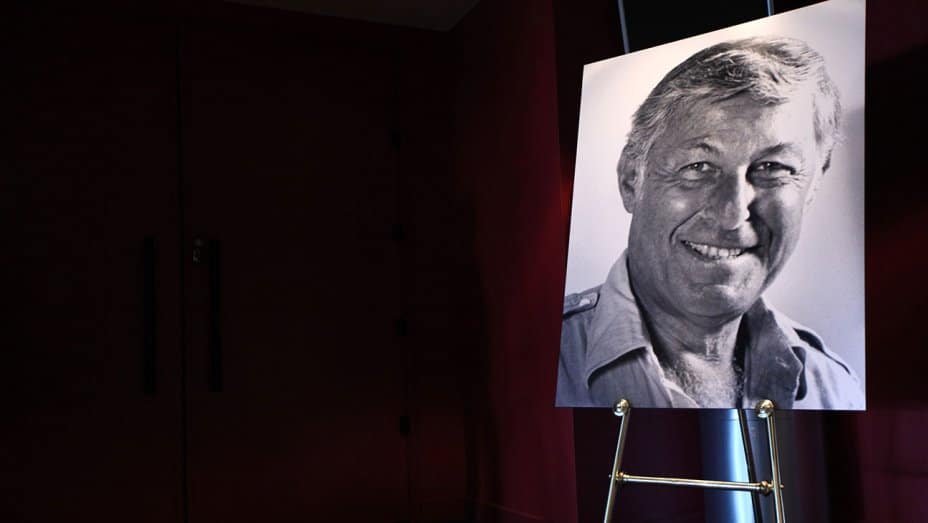A draft of an outside investigation into misconduct at CBS — leaked to the New York Times — could offer some measure of closure for employees of embattled newsmagazine 60 Minutes, who have been laboring under a cloud of uncertainty since longtime executive producer Jeff Fager was abruptly fired in September, two weeks before the premiere of the show’s 51st season.
The CBS board has come under intense pressure to release the report, which contains many unsettling allegations against ousted CEO Leslie Moonves. And several people associated with 60 Minutes who spoke to The Hollywood Reporter expressed relief that the report was made public, even if it was leaked. “I do think it could be a turning point,” said one.
The report was compiled in late November by investigators at two outside law firms; Debevoise & Plimpton and Covington & Burling. There could be amendments and alterations in the final version presented to the CBS board, which is scheduled to meet Dec. 11.
In the draft of the report, according to the Times, investigators said they did not find “a toxic work or ‘frat house’ environment for women” at the news division. But they did express concern that women were not getting opportunities for advancement. With regard to 60 Minutes, the investigators wrote; “in more recent years, the broadcast has promoted women to producer in senior roles, and Mr. Fager demonstrated sensitivity and support for working women.”
It was a stark contrast to the shop that Fager came up in under 60 Minutescreator Don Hewitt, who was known for his volcanic temper and apparent misogyny. (He famously drove Meredith Vieira to quit the show when he told her she could not work part time after the birth of her second child.) And among the most eye-popping findings in the report is that CBS has been paying, for more than 20 years, a former staffer who was allegedly repeatedly assaulted by Hewitt in the 1990s. The original $450,000 settlement has been renegotiated several times, including this year, and the total amount she has received has exceeded $5 million, and includes annual payments of $75,000 for the rest of her life.
Fager took over as executive producer from Hewitt in 2004; Hewitt died in 2009. There are only a few staffers from the Hewitt era still at 60 Minutes; they include correspondents Lesley Stahl and Steve Kroft. But none of the current employees who spoke to THR were aware of what one called this particular “legacy skeleton.” Another noted that while he was unaware of the settlement or the identity of the woman, the payment scheme was not entirely surprising. “The company culture was, pay some money and get rid of the problem.”
Today, most of the senior staff at 60 Minutes are women, including story editor Claudia Weinstein; Ann Silvio, who is in charge of 60’s digital platform; senior broadcast producer Deb DeLuca (who started her career at 60 Minutesas an associate producer for Mike Wallace), Tanya Simon (the daughter of the late correspondent Bob Simon); and Alison Pepper, the show’s chief of staff.
“You can’t change a culture overnight,” said one female staffer. “But it shows that Jeff did change things.”
The report found that the company was justified in firing Fager for sending a threatening text to a CBS News correspondent reporting on the accusations of misconduct against him in Ronan Farrow’s reporting in The New Yorker. Those reports also included accusations of misconduct against producer Ira Rosen and former producer Michael Radutzky.
“We note that the misconduct of individual 60 Minutes employees, including Mr. Fager and Mr. Rosen, should not have been tolerated, but we find that it was not as severe as the media accounts or as severe as the sexual misconduct that occurred during the Don Hewitt era at 60 Minutes,” the investigators wrote, according to the Times. They added that they did not find evidence that Fager knew of the severity of the alleged misconduct by Charlie Rose, who was ousted last November after a devastating report in The Washington Post.
“Of late and under Jeff, this has been a good place for women to work,” another 60 Minutes staffer told THR.
Fager, who had a long relationship with Rose, had been under intense scrutiny since the first Post report back in November 2017. And further reporting alleged misconduct on the part of Fager, including unwanted touching at company parties. Fager has denied the accusations.
According to the Times, the report mentioned that “a female employee had been instructed to drive [Fager] and other producers to a legal brothel while reporting a story in Nevada.” Sources at 60 Minutes say this occurred incident occurred in 2008, for a Steve Kroft interview with then-Senator Barack Obama, who was campaigning in Elko, Nevada. In the voice-over narration setting up the piece, Kroft notes: “Lined with casinos, Basque restaurants and legal brothels, it’s not the kind of place you would expect to find a presidential candidate with 47 days left till the election.”
But the report also found no evidence that Fager or current CBS News executives were “aware of the severity of Mr. Rose’s inappropriate conduct.”
CBS Corp. president and acting CEO Joseph Ianniello sent a company-wide memo on Thursday after the Times posted its first story about the report, which focused on accusations against Moonves. “It’s frustrating that confidential information from the ongoing investigation made its way to the public before management and the board knew about it — and importantly, before we could communicate with all of you,” Ianniello wrote. “And while we still don’t yet know the actual results, I do understand that the investigation is nearing an end.”
After Fager was fired, CBS News president David Rhodes named Bill Owens interim executive producer of the broadcast. Owens has been Fager’s longtime heir apparent and is a leading candidate to get the job permanently. 48 Hours executive Susan Zirinsky also is being considered. When Fager was tapped in 2011 as chairman of the news division, Owens took on greater oversight of 60 Minutes day-to-day. He has been executive editor of the broadcast since 2008. When Fager was named chairman of the news division, Rhodes was hired as his No. 2. It was a bifurcated leadership structure that let Fager keep one hand in at 60 Minutes. When Fager finished his tenure as CBS News chairman at the end of 2014, Rhodes became the top executive at CBS News.
One of the critiques of 60 Minutes — which is housed across the street from CBS News headquarters on West 57th Street — is that is operated with too much independence, and that allowed misconduct to go unchecked. “The physical, administrative and cultural separation between 60 Minutes and the rest of CBS News permitted misconduct by some 60 Minutes employees,” wrote investigators.
According to the Times, the report recommended that the next executive producer of 60 Minutes report to the president of CBS News. “Mr. Fager reported to Mr. Moonves,” according to the Times. But sources with knowledge of Fager’s contract say that he actually reported to both Rhodes and Moonves, though clearly, as CEO Moonves was atop the hierarchy.
60 Minutes has always been a challenging environment in which to succeed, with long hours, much time on the road, high stakes and often dangerous assignments. Tempers flared, people yelled, they threw things. But the show’s culture — like that at most media organizations — has evolved, say those in the industry. Among the last times Fager addressed the 60 Minutes staff, he noted as much: “We used to say this is a creative place and creative people can be crazy,” said Fager, according to two people who were there. “That’s no longer acceptable. Just because you’re creative, does not mean you can be rough on people. Those days are long gone.”
(Excerpt) Read more in: The Hollywood Reporter





